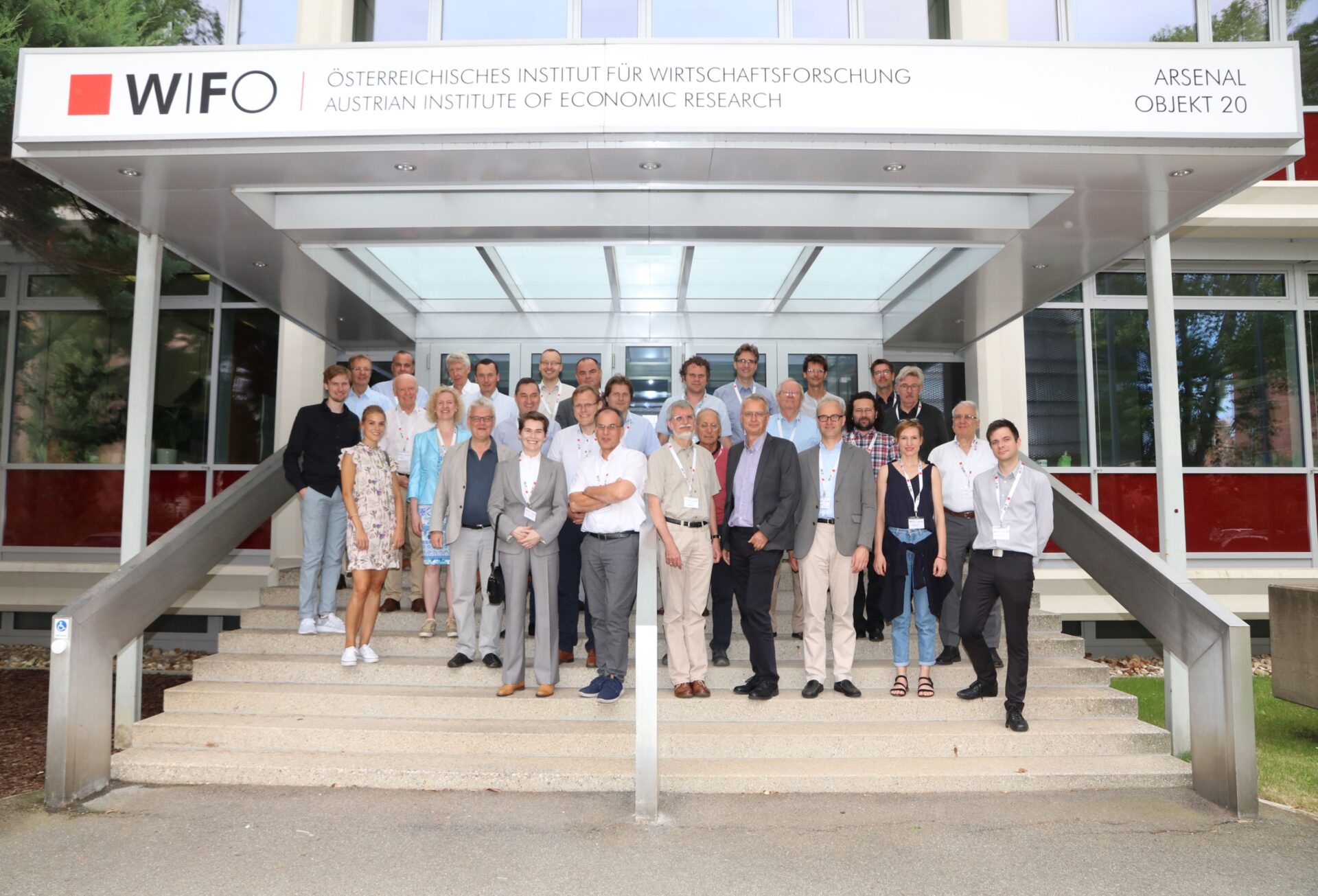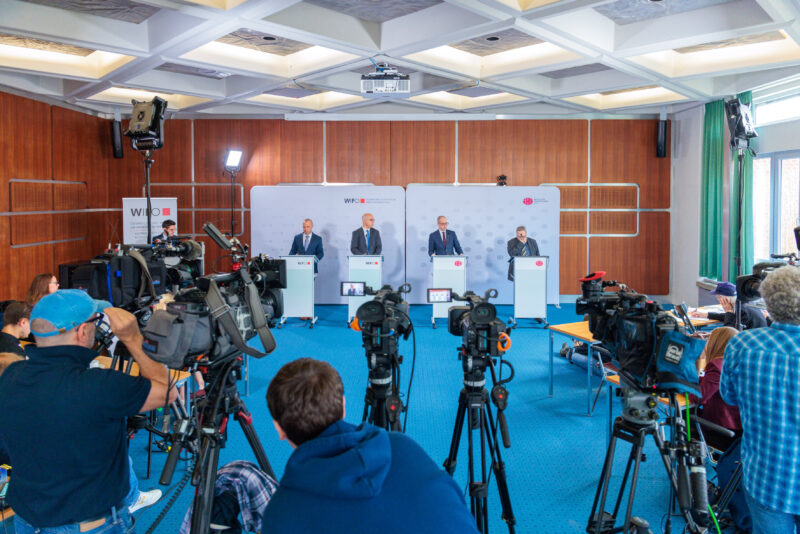
Evolutionary Economics at WIFO
In the two keynote lectures, the question of alternative forms of social coordination beyond the usual dichotomy of market versus central government was posed from very different perspectives.
Jason Potts: Institutional Cryptoeconomics
In his lecture "Institutional cryptoeconomics: understanding the blockchain economy" Jason Potts from RMIT University in Melbourne explained the special importance of new blockchain technologies as a basis for institutional change towards decentralized systems of coordination of economic activities (e.g. electronic payment systems, integrated value chains).
Jean-Robert Tyran: Can democracy ever work?
The second guest lecture focused on voting as a form of social coordination in contrast to centralised decision-making. Under the title "Can democracy ever work? A behavioral and experimental economics perspective", Jean-Robert Tyran, Vice-Rector of the University of Vienna, gave an overview of his scientific work on the advantages and problems of collective decision-making through voting.
Various research results showed, for example, that the possibility of participating in voting also increases the willingness to accept collective decisions and rules. The thesis of a "wisdom of the crowd", which is less susceptible to error than centralised decision-making, can also be supported by experiments. Both examples ultimately point to economic advantages of democratic processes.
Please contact
























